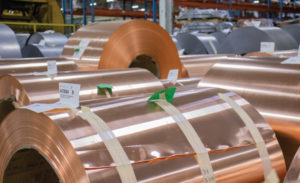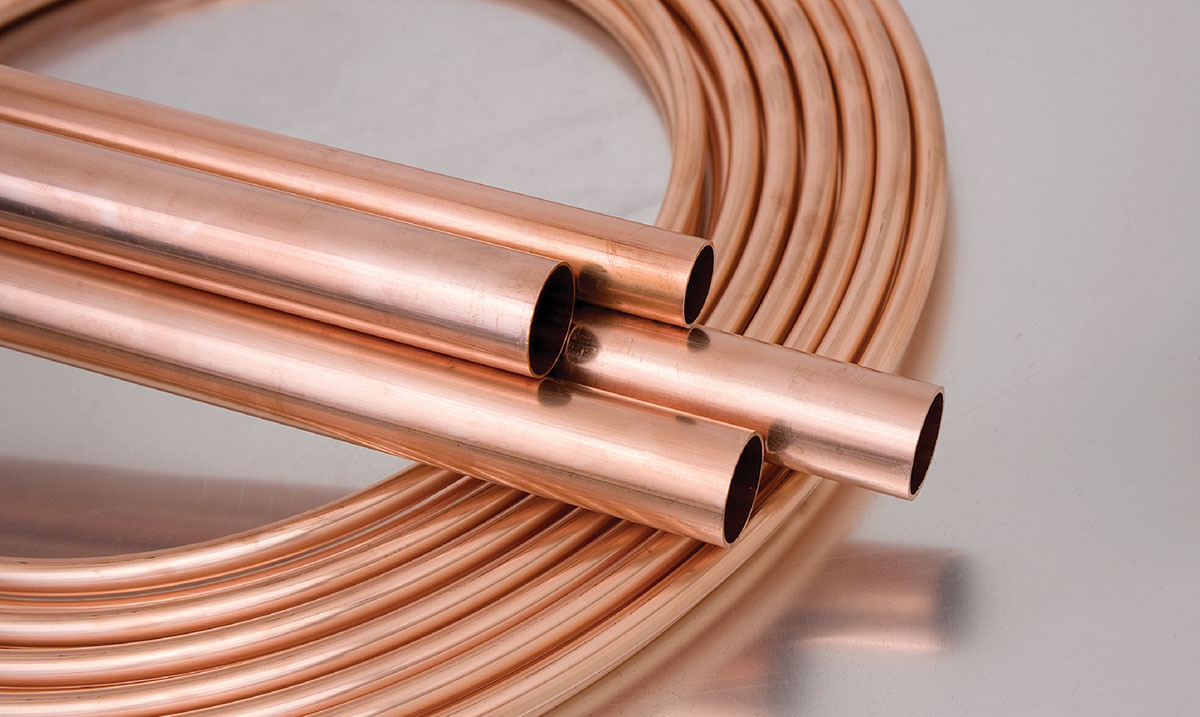The Ultimate Guide to Sustainable Coping With Eco-Friendly Copper Products
The Ultimate Guide to Sustainable Coping With Eco-Friendly Copper Products
Blog Article
Exactly How Copper Products Contribute to Lasting Practices in Different Sectors
Copper products are increasingly acknowledged for their significant payments to lasting methods across numerous sectors, driven by their integral residential properties such as performance, toughness, and recyclability. In renewable resource systems, as an example, copper improves the performance of solar and wind innovations, while its application in building reduces waste via longevity. Additionally, the material's antimicrobial qualities provide appealing benefits in medical care settings. As markets seek to embrace more sustainable techniques, the role of copper can prove crucial in attaining environmental objectives. What effects might this have for future advancements in sustainability?
Copper in Renewable Power
Copper plays an important duty in the improvement of renewable resource modern technologies, acting as a vital conductor in numerous applications. Its exceptional electric conductivity and resistance to deterioration make it an optimal product for electric circuitry, which is necessary in solar panels, wind turbines, and power storage space systems. In solar photovoltaic or pv systems, copper is utilized in the affiliations and wiring, allowing efficient power conversion from sunshine to electrical energy.
In wind power, copper is indispensable to the generators and transformers that transform kinetic power into electric power, making certain optimum efficiency and reliability. Moreover, the need for electric vehicles (EVs) is raising, with copper being a crucial component in batteries, motors, and billing facilities. The transition to EVs significantly improves the demand for copper, as these cars typically make use of 4 times more copper than traditional interior combustion engine vehicles.
As the world looks for to minimize climate change and transition to lasting power resources, copper's role comes to be significantly vital. The product not only improves the efficiency and toughness of renewable resource systems yet also sustains the broader goal of lowering greenhouse gas exhausts and advertising a sustainable future.
Eco-Friendly Construction Products
In recent times, there has actually been a significant change towards the fostering of eco-friendly building and construction products in response to expanding environmental concerns. This adjustment is inspired by the demand for sustainable choices that decrease environmental footprints while maintaining architectural integrity and aesthetic appeal.
Copper, recognized for its toughness and recyclability, has arised as a principal in this field. It can be made use of in roofing, plumbing, and electric systems, adding to energy performance and lowering waste. Copper's durability means less replacements gradually, more enhancing its sustainability account.
Additionally, materials such as bamboo, redeemed wood, and reused steel are obtaining popularity. These options not only provide minimized environmental effect however likewise promote source conservation. As building codes significantly stress sustainability, engineers and builders are integrating these materials right into their tasks, fostering technology in layout.
The enhancing adoption of eco-friendly construction materials mirrors a more comprehensive dedication to sustainability in the constructed environment. By prioritizing these materials, the construction industry can dramatically decrease its carbon impact, line up with regulative criteria, and sustain a healthier community for future generations. This trend marks a pivotal step in the direction of a much more lasting future in building.
Copper's Role in Medical care
Recent studies have highlighted the considerable function of copper in healthcare setups, especially because of its antimicrobial homes. Copper surfaces have been revealed to lower the visibility of microorganisms, consisting of germs and infections, by as much as 99.9% within a brief period. This remarkable efficacy makes copper a very useful material for high-touch surfaces in hospitals, such as doorknobs, bed rails, and IV posts, thereby adding to improved infection control measures.
In addition to its direct antimicrobial impacts, copper also contributes in the wider context of healthcare facility sustainability (Copper Products). By incorporating home copper into medical tools and furnishings, visit health care facilities can lower the incidence of healthcare-associated infections (HAIs), which not just improves individual end results however likewise lowers the expenses related to extended healthcare facility keeps and added treatments
Additionally, copper's resilience and recyclability line up with sustainable methods, enabling responsible source management. As medical care systems significantly prioritize both patient safety and ecological stewardship, the combination of copper products is becoming a lot more prevalent. This double advantage highlights copper's vital contribution to a healthier, more secure, and much more lasting medical care environment.
Sustainability in Transportation

Moreover, copper's resilience and corrosion resistance add to the longevity of transport infrastructure (Copper Products). In rail systems, for circumstances, copper parts boost the dependability and effectiveness of signaling and power systems, essential for reducing hold-ups and power usage. Furthermore, copper's duty in renewable resource systems, such as solar and wind, sustains lasting transportation services by supplying tidy energy for electrical transit alternatives
Investments in copper innovation not just foster sustainability however likewise boost financial growth and job creation in eco-friendly industries. As sectors aim to meet strict ecological policies, the application of copper products in transport emerges as a critical method in attaining sustainability goals and promoting a cleaner, more effective future.
Copper and Round Economic Climate
As the world significantly accepts sustainability, the function of copper in the circular economic situation ends up being ever much more significant. Copper's intrinsic homes-- such as its durability, recyclability, and conductivity-- position it as a crucial product in a resource-efficient economic situation. The circular economy intends to minimize waste and optimize resource use via recycling and reusing products, and copper excels in this regard.
The find more info metal can be recycled forever without loss of top quality, making it an optimal candidate for sustainable techniques throughout numerous industries, consisting of construction, electronics, and renewable resource. By reprocessing and recuperating copper from end-of-life products, markets can considerably minimize the demand for virgin materials, thus reducing environmental impacts related to mining and handling.
In addition, the combination of copper into round economic climate frameworks not just preserves resources yet additionally promotes innovation. Businesses that prioritize copper reusing add to a more sustainable supply chain, improving their competitiveness while straightening with regulative needs and customer preferences for eco accountable products.
Verdict
Finally, copper products substantially add to lasting practices throughout several fields. Their essential function in boosting renewable energy technologies, promoting environment-friendly building and construction materials, supporting infection control in medical care, helping with lasting transport, and embodying the concepts of a circular economic climate underscores the versatility and value of copper. By incorporating copper right into various applications, markets can accomplish higher efficiency, lower ecological effect, and line up with worldwide sustainability objectives, inevitably cultivating a more lasting future.

Copper's outstanding conductivity makes it a preferred material in electric vehicle (EV) systems, boosting energy efficiency and performance. In addition, copper's duty in sustainable energy systems, such as solar and wind, supports sustainable transport services by giving clean energy for electric transit options.
Their crucial function in improving sustainable energy modern technologies, advertising environment-friendly construction products, supporting infection control in healthcare, facilitating sustainable transportation, and personifying the concepts of a circular economic situation underscores the versatility and relevance of copper.
Report this page